
In the age of the internet, misinformation can spread more quickly than ever before. From the presence of trolls who are intent on creating and disseminating falsehoods to the growing wave of anti-science sentiment based on discredited studies, there are so many lies parading as truth that even the most discerning of us may occasionally fall prey to a “fact” that is completely wrong.
Before the internet, many common misconceptions spread through word of mouth. Children learned them in schools and from their parents. Most people grew up accepting certain widespread myths as truth – such as the story of George Washington cutting down a cherry tree. (It never happened; but did you know that Lincon was a wrestler, and Truman never went to college? Read the most surprising facts about every American president.)
To identify 38 completely false “facts” you probably still believe, 24/7 Tempo made a selection of debunked myths, common misconceptions, and disproved beliefs from recent history. We consulted a variety of sources including Guinness World Records, Reader’s Digest, the Best Life Online, and the Travel Channel.
Many of these non-facts have been scientifically debunked or otherwise disproven by numerous historical sources. Often, as in a game of telephone, the overblown claim can be traced back to a single dubious publication or source, but was subsequently believed and heavily embellished over the years. (Speaking of gullibility, here are the best practical jokes of all time.)
Click here to see 38 completely false “facts” you probably still believe today

Salty water boils quickly
Although it’s technically true that adding salt can make water boil faster, the amount of salt that home cooks usually add is nowhere near enough to make a noticeable difference. It would take a pot of water with over 20% salt to achieve a noticeably quicker boil.
[in-text-ad]

Mount Everest is the world’s tallest mountain
Rising 29,032 feet above sea level, Mount Everest is indeed the highest mountain in the world; but from base to pinnacle, Hawaii’s Mauna Kea is taller, at 33,480 feet. The Hawaiian mountain just happens to be 60% underwater.

Humans only use 10% of their brains
A prevailing myth since the early 20th century has been that humans only use a fraction of their brains. In fact, we use virtually every part of them unless they’ve been damaged by disease or physical trauma.

George Washington had wooden teeth
While the nation’s first president did indeed have false teeth, they weren’t wooden. His dentures were likely fashioned from a combination of teeth pulled from slaves, hippopotamus or elephant ivory, and metal alloys including brass.
[in-text-ad-2]
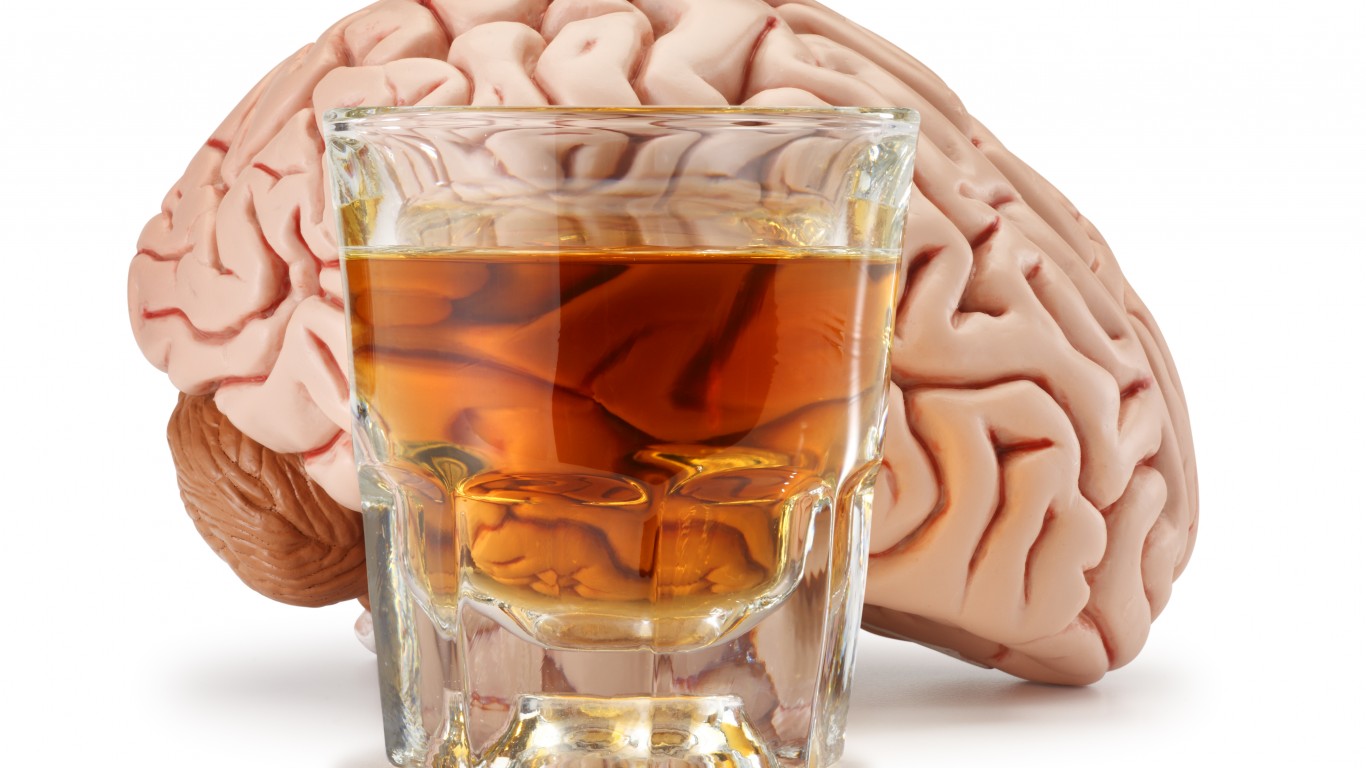
Alcohol kills brain cells
Although drinking alcohol can cause damage to dendrites in the brain, which receive nerve signals, it doesn’t kill brain cells. The amount of alcohol needed to kill a brain cell would kill the person drinking it.

The Great Wall of China is visible from space
Although the Great Wall is indeed long, it is also relatively thin, making it virtually invisible from space. Very few man-made structures can be seen from space with the naked eye, but city lights are detectable at night.
[in-text-ad]
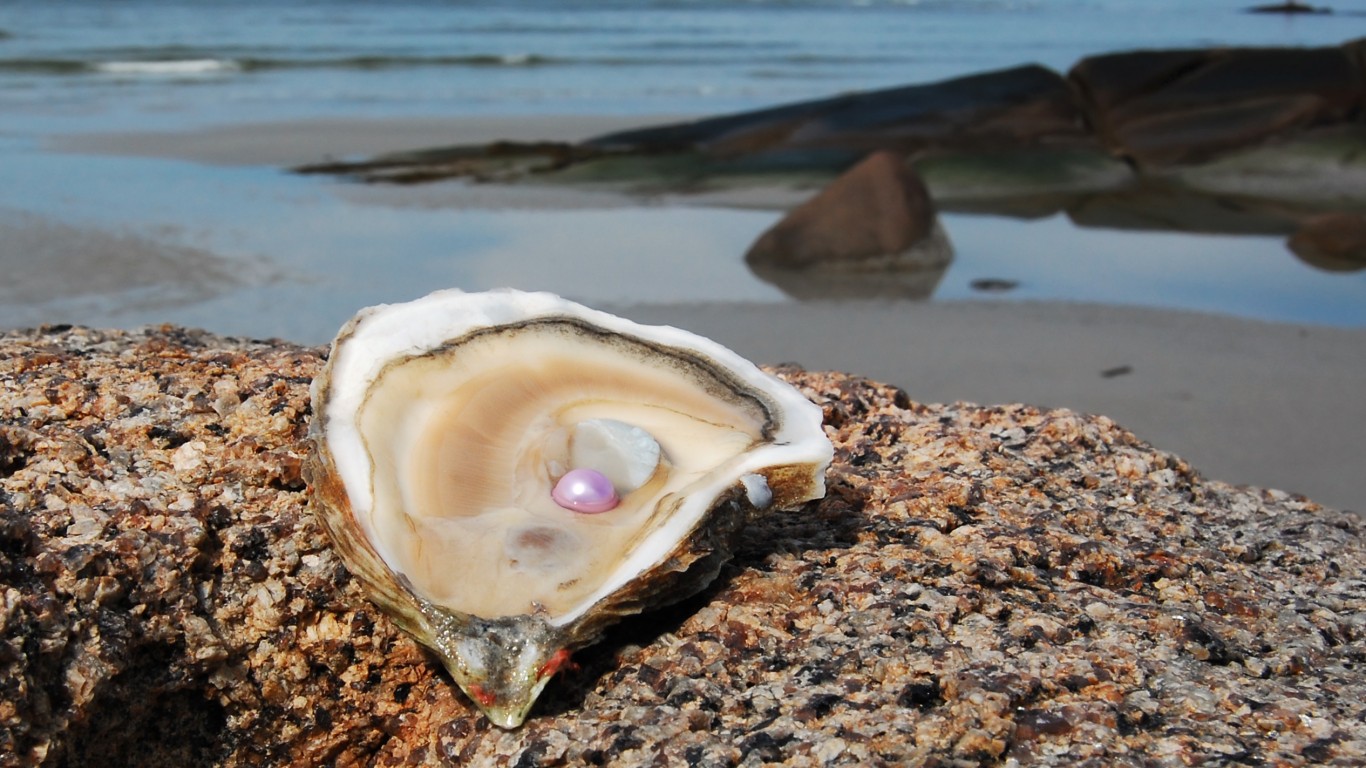
Only oysters make pearls
All bivalve mollusks (including clams, mussels, and scallops as well as oysters) are capable of producing pearls, however only certain mollusk groups create nacre, the substance that gives gem pearls their characteristic luster.

Sugar makes children hyperactive
When kids start bouncing off the walls after they’ve had too much Coke or birthday cake, it’s common to blame a “sugar high.” The relationship between sugar and hyperkinesis was first proposed in a 1978 study that has since been discredited. Several double-blind follow-up studies have shown no relationship at all.
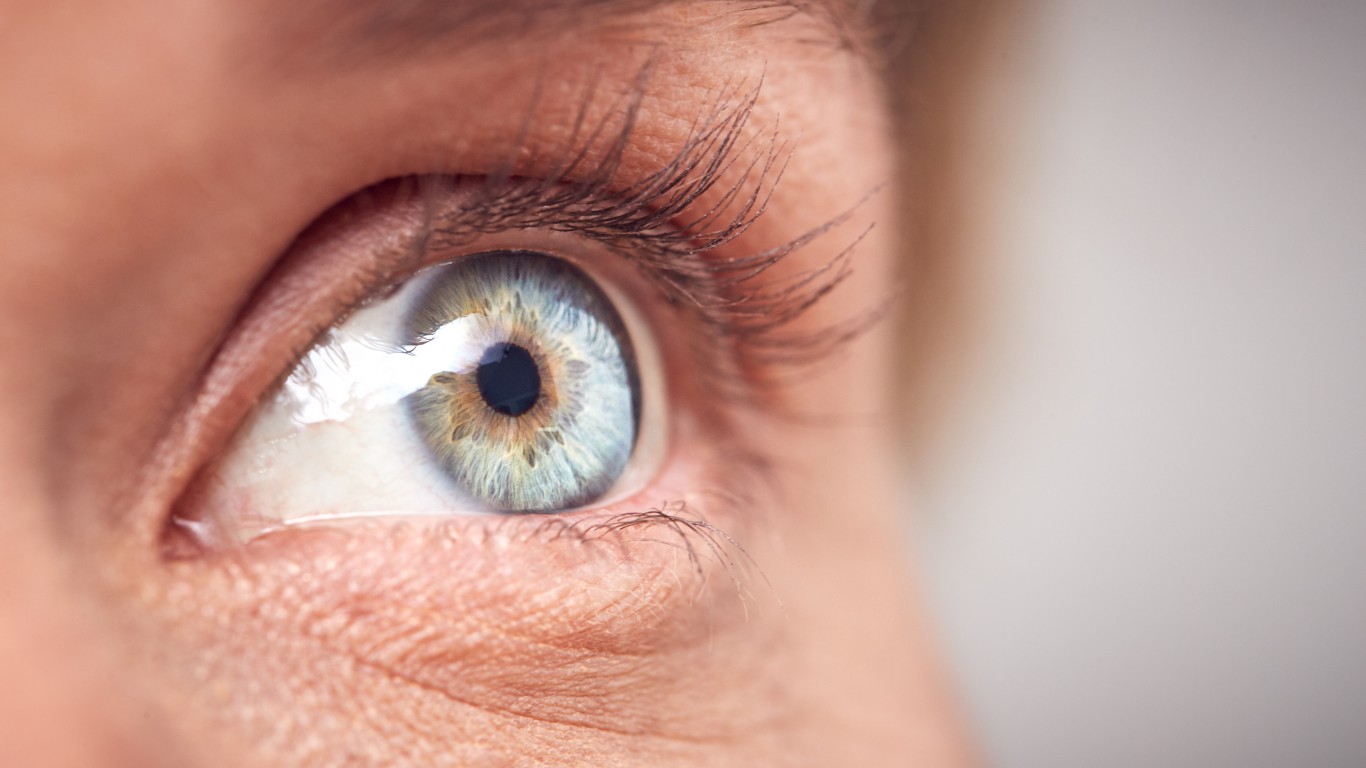
We only have five senses
Aristotle was the first to state that humans have five senses; but in the thousands of years since his time, scientists have discovered many more. Some neuroscientists believe we have up to 33 senses, including the abilities to feel pain and temperature and to sense balance, direction, weight, and the passing of time.
[in-text-ad-2]

Christopher Columbus set out to prove the earth was round
Columbus didn’t need to prove the earth was round. People had begun accepting this fact in the fifth century B.C., thanks to the work of scientists, astronomers, and mathematicians. Columbus was only trying to gauge the size of the oceans in order to open up new trade routes.

Benjamin Franklin wanted the nation’s Great Seal to depict a turkey
Although founding father Benjamin Franklin did criticize the bald eagle as a bird of questionable moral character for stealing prey from other birds, he never suggested the turkey as the its replacement. He actually proposed an image of Moses commanding the sea to destroy a pharaoh in a chariot, accompanied by the words “Rebellion to Tyrants is Obedience to God.”
[in-text-ad]
Touching a baby bird will impart human smell and cause its mother to abandon it
Birds don’t have a particularly strong sense of smell, so human handling will not deter a mother from taking care of her chick. This tale likely came about as a way for parents to prevent their children from meddling with vulnerable creatures.

Milk increases mucus
Multiple studies done on dairy consumption in people who have colds showed no increase in mucus production as a result of drinking milk. The milk can, however, coat existing mucus and saliva, making it feel thicker – which may cause people to think they are producing more.

The Pilgrims first landed at Plymouth Rock
In November of 1620, the Pilgrims made their first landfall on the tip of Cape Cod, in what is now Provincetown, Massachusetts, before sailing to Plymouth a month later. It wasn’t until 1741 that a 94-year-old church elder claimed that the boulder now known as Plymouth Rock was the Pilgrims’ exact landing spot.
[in-text-ad-2]

You need to wait 30 minutes after eating to swim
According to parents everywhere, swimming directly after eating can cause severe, paralyzing cramps, because it interrupts the blood flow and oxygen that are being diverted to your stomach for digestion. The truth is, swimming after eating is as safe as swimming any other time, and there have been no documented deaths due to swimming on a full stomach. The myth was first recorded in a 1911 Boy Scouts handbook.

SOS stands for “Save Our Ship”
The maritime Morse code distress signal that entails a continuous string of three dots, three dashes, and three more dots was adopted internationally in 1906. It was originally not associated with any letters, but because three dots form an S and three dashes form an O in international Morse code, people began calling the signal SOS out of convenience. “Save our ship” is a mnemonic that likely developed to help sailors remember the new signal.
[in-text-ad]

Dogs see only black and white
Dogs aren’t completely color blind; they have two types of color-sensing cones, as opposed to the three that most humans have. Dogs have dichromatic vision, and can detect shades of blue and yellow. It’s similar to having red-green colorblindness.

Bananas grow on trees
A banana plant may grow as tall as a tree, but it’s actually a large succulent herb whose trunk never grows woody, as tree trunks do. The main growth stem of the banana plant is an underground rhizome and the shoots that grow vertically from the rhizome are pseudostems that die back after the bananas are harvested.

Bulls hate red
Bulls cannot discern the color red. When they charge a matador, it’s because they view the swift motions of his muleta, or cape, as a threat. The muleta is traditionally red to mask the color of the bull’s blood spatter.
[in-text-ad-2]
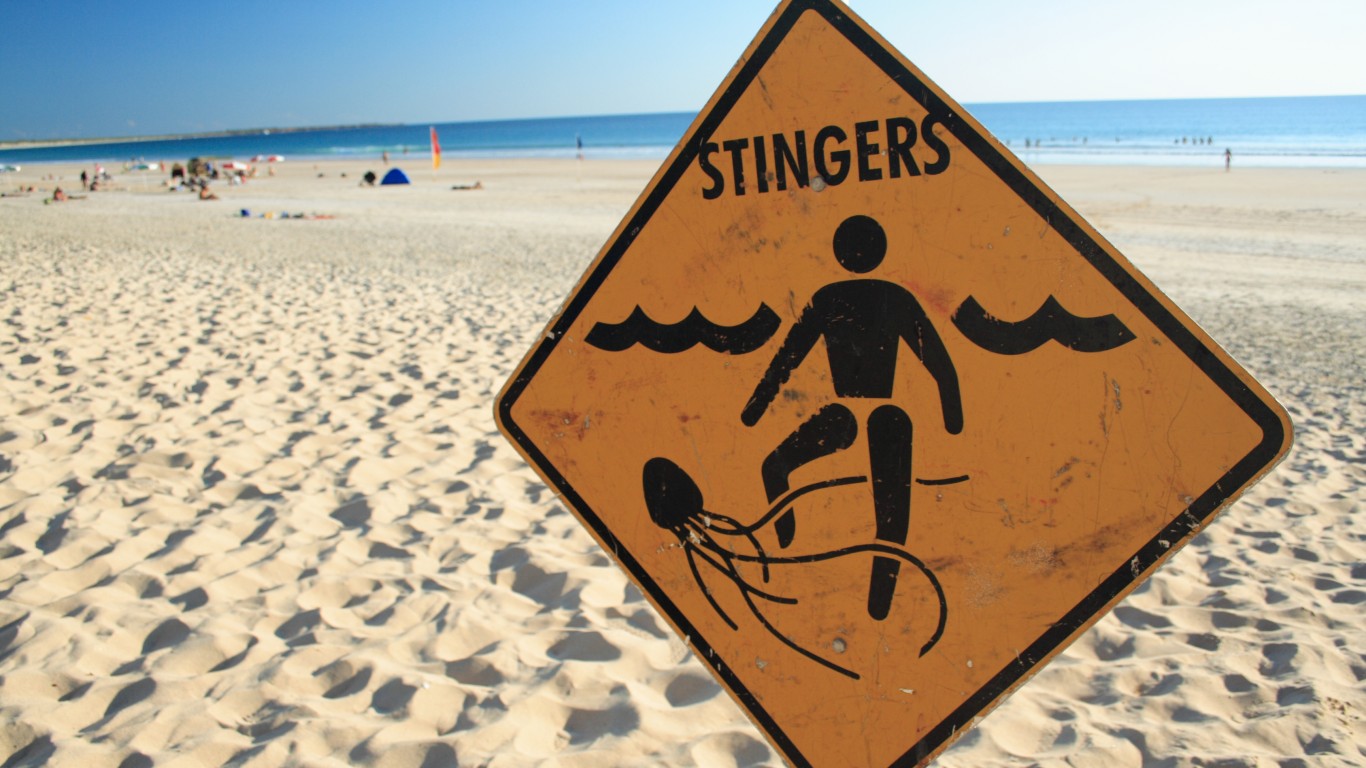
Urine will soothe a jellyfish sting
Unfortunately, urinating on jellyfish stings can aggravate them even more. In order to deactivate the toxin-releasing organelles that are left on the skin by the jellyfish, it’s best to wash the sting with sea water first, then with vinegar or a paste made from baking soda and sea water.

Vikings had horns on their helmets
The popular depiction of Vikings in horned helmets can be traced to a 19th-century German cultural revival. Art depicting horned Vikings may have existed prior to the 1870s, but the image was solidified in history when costume designer Carl Emil Doepler utilized horned helmets for a festival featuring the operas of Richard Wagner.
[in-text-ad]

Vaccines cause autism
The idea was made popular by former physician Andrew Wakefield in 1998, when he published a forged scientific study linking autism to the MMR vaccine. His study has since been discredited, and Wakefield’s medical license has been revoked.

Napoleon was short
Napoleon is recorded as having been 5’2″; but the French measurement translates to about 5’6″ in U.S. customary units, which was an average adult male height during Napoleon’s time. The misconceptions about his short stature can also be attributed to the political cartoons of British cartoonist James Gillray.
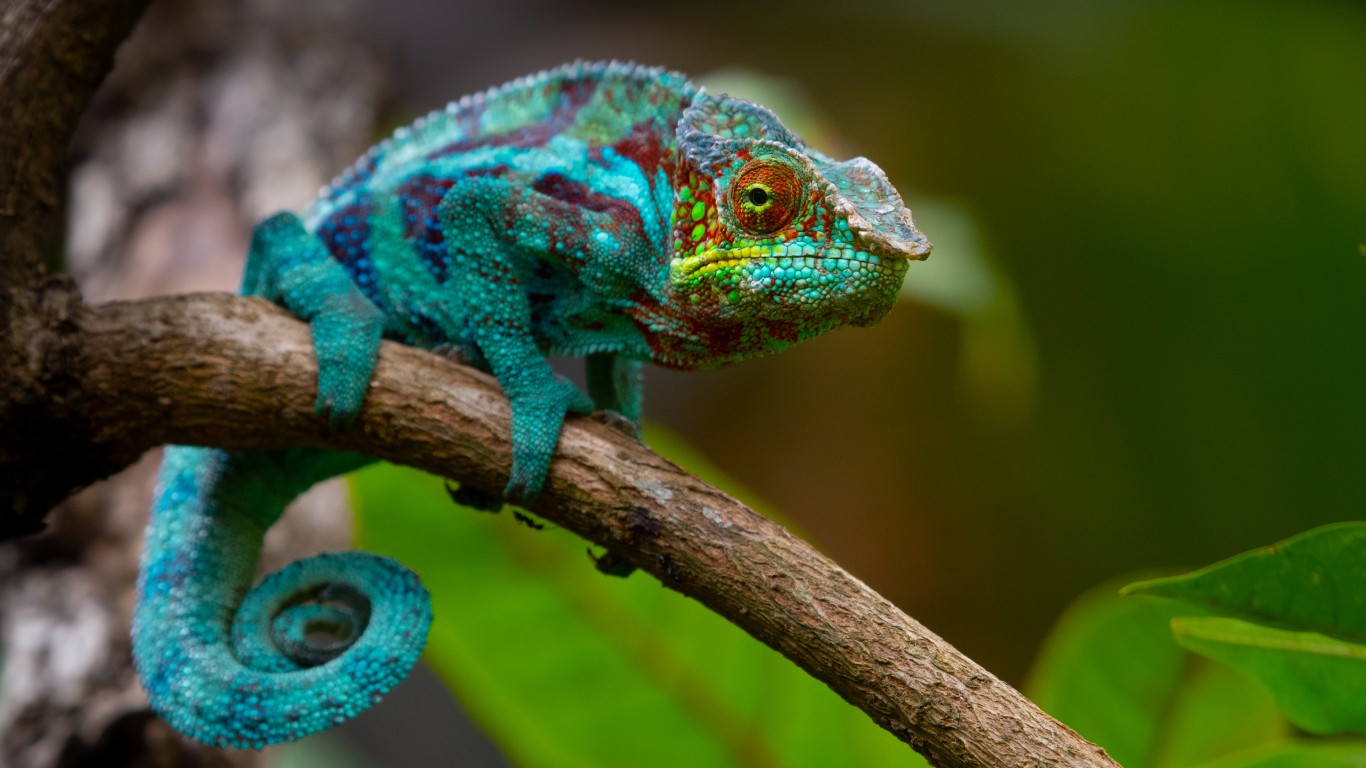
Chameleons change colors to blend in with their surroundings
Chameleons are capable of changing their skin color, but it has little to do with camouflage. They use color changes to communicate their mood to other chameleons, and to help regulate their temperature.
[in-text-ad-2]

A penny dropped off a skyscraper can kill someone
The terminal velocity of a penny dropped from a skyscraper would be about 25 mph. Due to a penny’s shape, air resistance would prevent it from reaching speeds high enough to harm a person or do much damage to anything it hits.
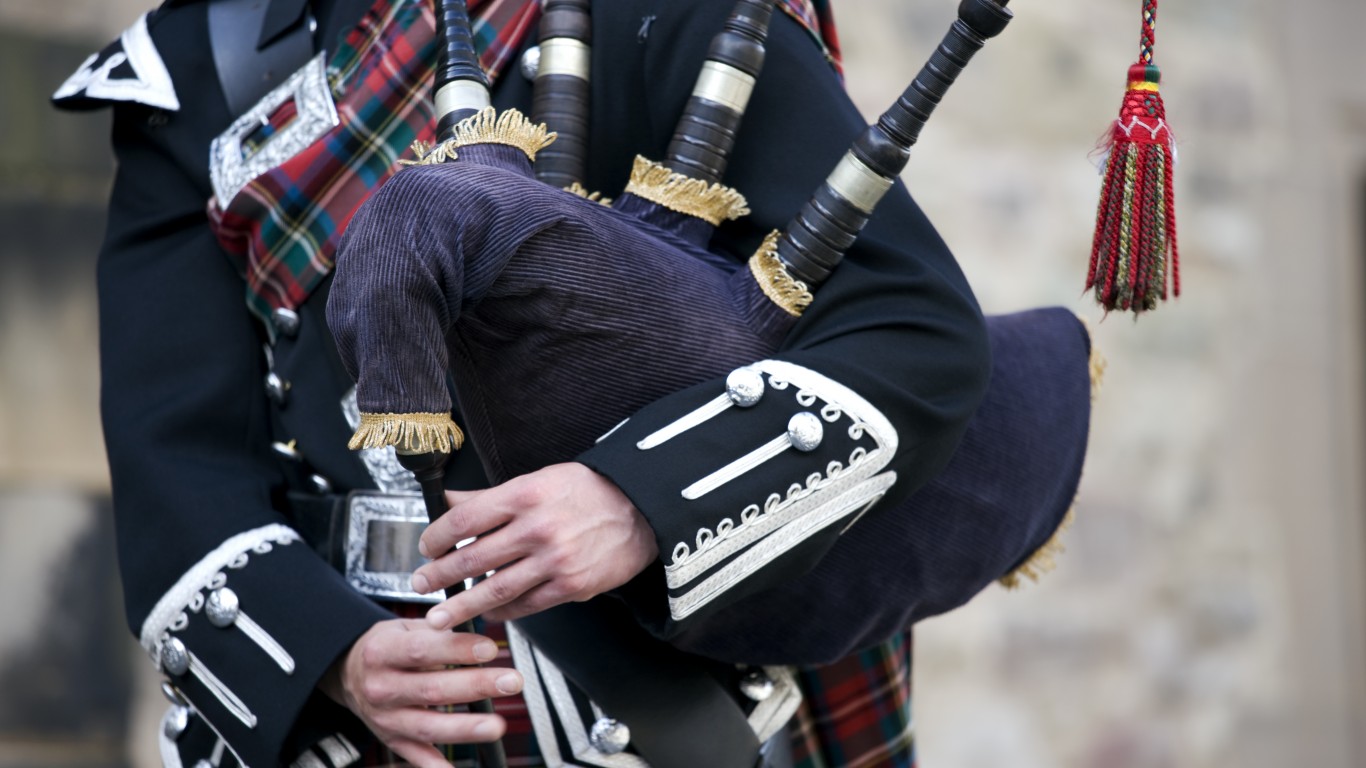
Bagpipes are Scottish
Although bagpipes are now synonymous with Scotland, they likely originated in the Middle East. Ancient text and representations of the bagpipe have been found in Egypt and Turkey. The instrument likely made its way to Rome before spreading into Western Europe.
[in-text-ad]

Slaves built the pyramids
The skilled laborers who built the pyramids lived in a bustling town built specifically to house and feed them. Excavated animal bones and bread jars show that they were fed very well, and some workers were honored by being entombed near the site of the pyramids.

The odds are always 50-50 in a coin toss
According to an experiment conducted at Stanford, a coin is actually slightly more likely to land facing the same direction it started in. The odds are about 51-49 that a tossed coin will land in its original position.

Swallowed gum remains in your stomach for seven years
While it’s true that the human digestive system can’t break down gum, swallowed gum won’t remain in the stomach. It will pass through and be excreted, similarly to insoluble fibers like wheat bran and corn.
[in-text-ad-2]

During the Salem Witch Trials, women accused of witchcraft were burned at the stake
Although being burned alive was a common fate for women accused of witchcraft during the Medieval ages in Europe, the accused in Salem were generally hanged or died while in prison.

Twinkies have no expiration date
Twinkies have a shelf life of about 25 days. They are known to become chewy after that time, and people who have experimented with keeping Twinkies around for years have reported mold, discoloration, and shriveling of the aged specimens.
[in-text-ad]

The tongue has different sections for each taste
It’s true that certain areas of the tongue – namely the edges and tip – are more sensitive to taste, but that sensitivity isn’t dependent on the type of taste. All areas of the tongue that can detect taste will detect sweet, salty, bitter, sour, and umami with generally equal aptitude.

Peanuts are a type of nut
Despite their name, peanuts are not nuts, but rather legumes that grow underground. They are members of the pea family and are closely related to clover, chickpeas, and fava beans.

Most body heat is lost through the head
Any part of the body that is unclothed in the cold will lose heat. It just so happens that people are more likely to go outside without hats than without shirts or pants, and therefore are likely to lose more heat from their heads. The human head, however, doesn’t lose heat any more readily than the rest of the body.
[in-text-ad-2]

Marie Antoinette said “Let them eat cake”
The consensus among historians is that the French queen never uttered those famous words. Long before the rumors of her callous remark began circulating, similar rumors surrounded the Spanish wife of King Louis XIV, who was accused of saying that the French people could eat “the crust of the pâté.”
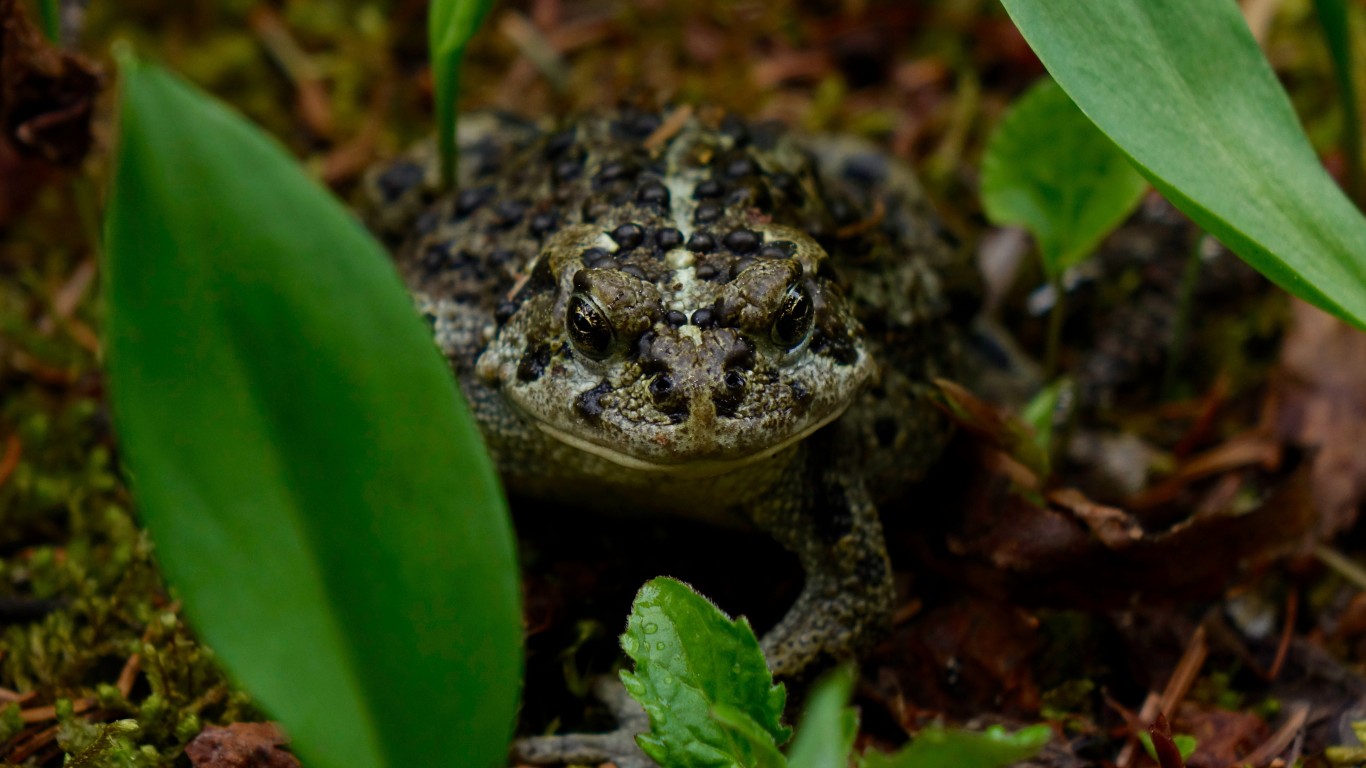
Toads cause warts
Although toads are covered in bumpy glands that can secrete various protective substances, they can’t give humans warts. Warts are caused by the human papillomavirus, which can only be spread by other humans and surfaces that someone with an active infection has come into contact with.
[in-text-ad]

Every living thing dies
Although most living things do die, there is a species of jellyfish that has remarkably attained immortality. Adult Turritopsis dohrnii jellyfish can revert to an embryonic-like state (called a polyp) if they are injured or starving. The polyp will eventually release a colony of baby jellyfish that are genetically identical to the original.
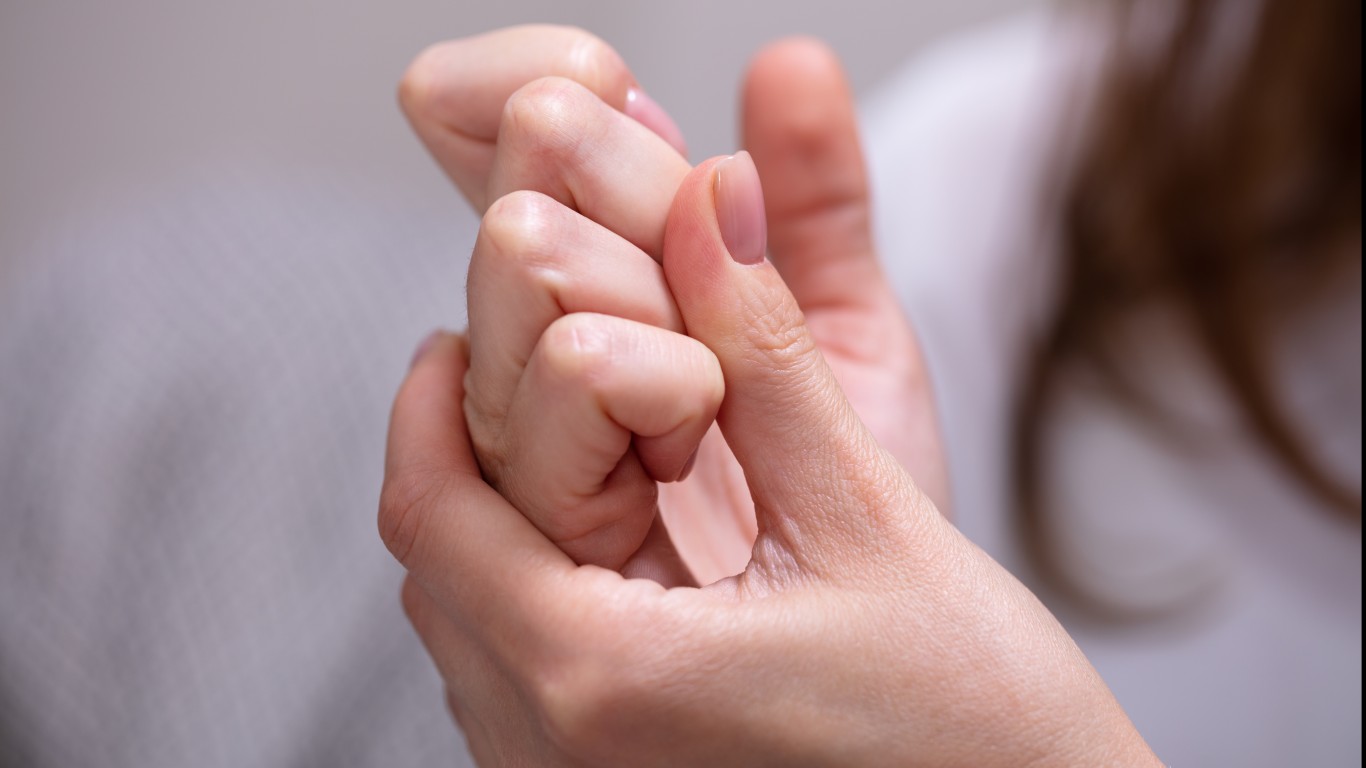
Cracking your knuckles too much will cause arthritis
According to Harvard Medical School, cracking your knuckles is not a particularly harmful habit – as long as you don’t take it too far and injure a tendon or dislocate your finger. It has not been shown to contribute to the development of arthritis.

Alcohol keeps you warm
Alcohol acts as a vasodilator, causing capillaries near the skin to fill with blood. While this can make someone feel warmer, the movement of blood to the surface actually causes heat loss and decreases core body temperature.
[in-text-ad-2]
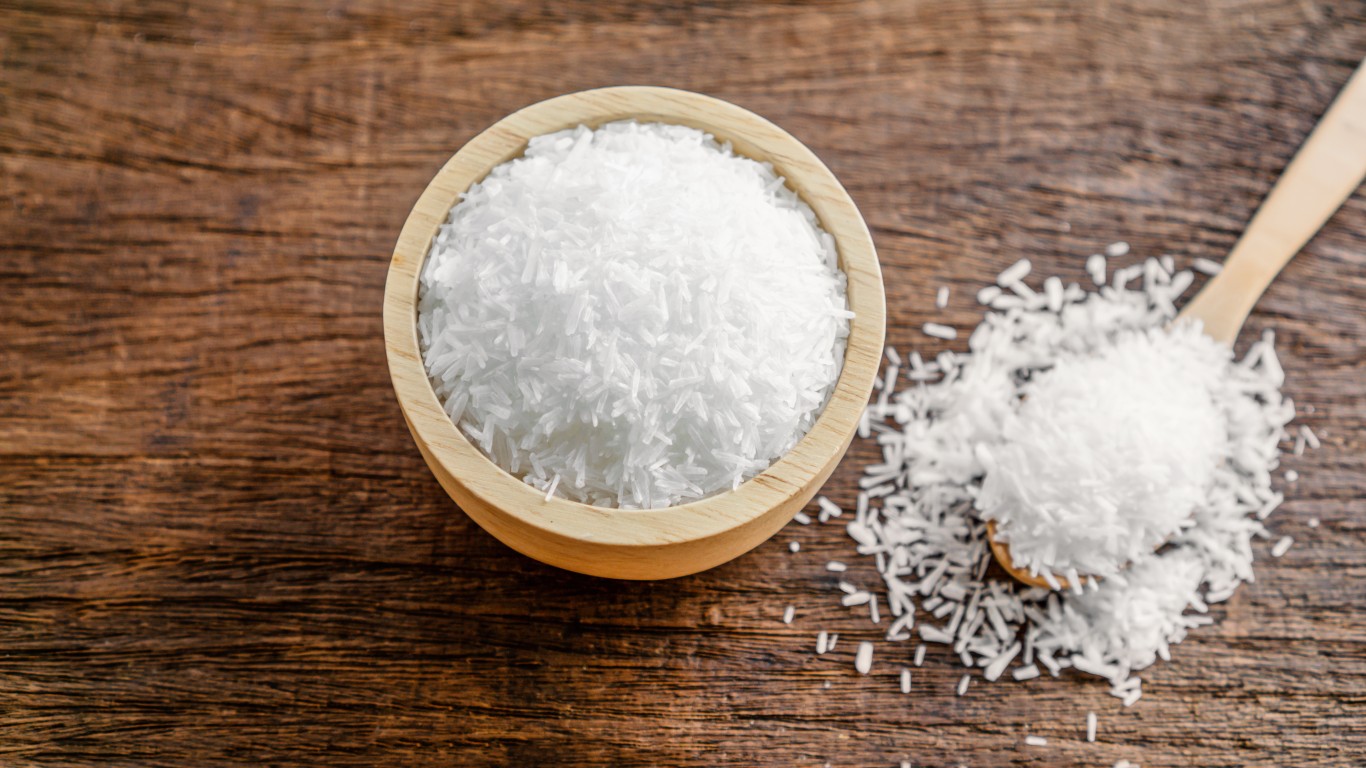
MSG causes headaches
MSG is a salt of the naturally occuring amino acid glutamate (which is present in everything from breast milk to tomatoes to walnuts). Although many people claim that MSG gives them headaches, a 2016 systematic review of human MSG studies concluded that there is no significant evidence linking MSG with headaches.
Want to Retire Early? Start Here (Sponsor)
Want retirement to come a few years earlier than you’d planned? Or are you ready to retire now, but want an extra set of eyes on your finances?
Now you can speak with up to 3 financial experts in your area for FREE. By simply clicking here you can begin to match with financial professionals who can help you build your plan to retire early. And the best part? The first conversation with them is free.
Click here to match with up to 3 financial pros who would be excited to help you make financial decisions.
Thank you for reading! Have some feedback for us?
Contact the 24/7 Wall St. editorial team.
 24/7 Wall St.
24/7 Wall St.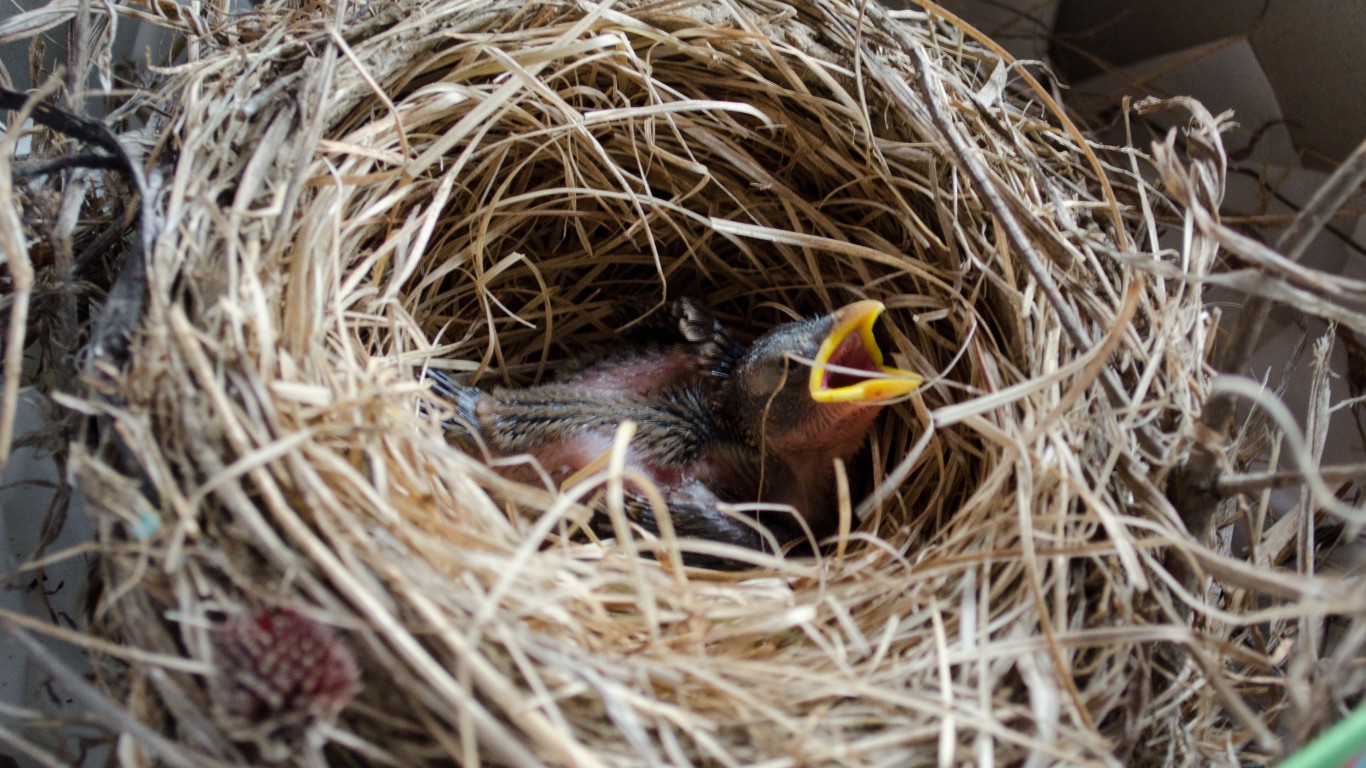
 24/7 Wall St.
24/7 Wall St. 24/7 Wall St.
24/7 Wall St.